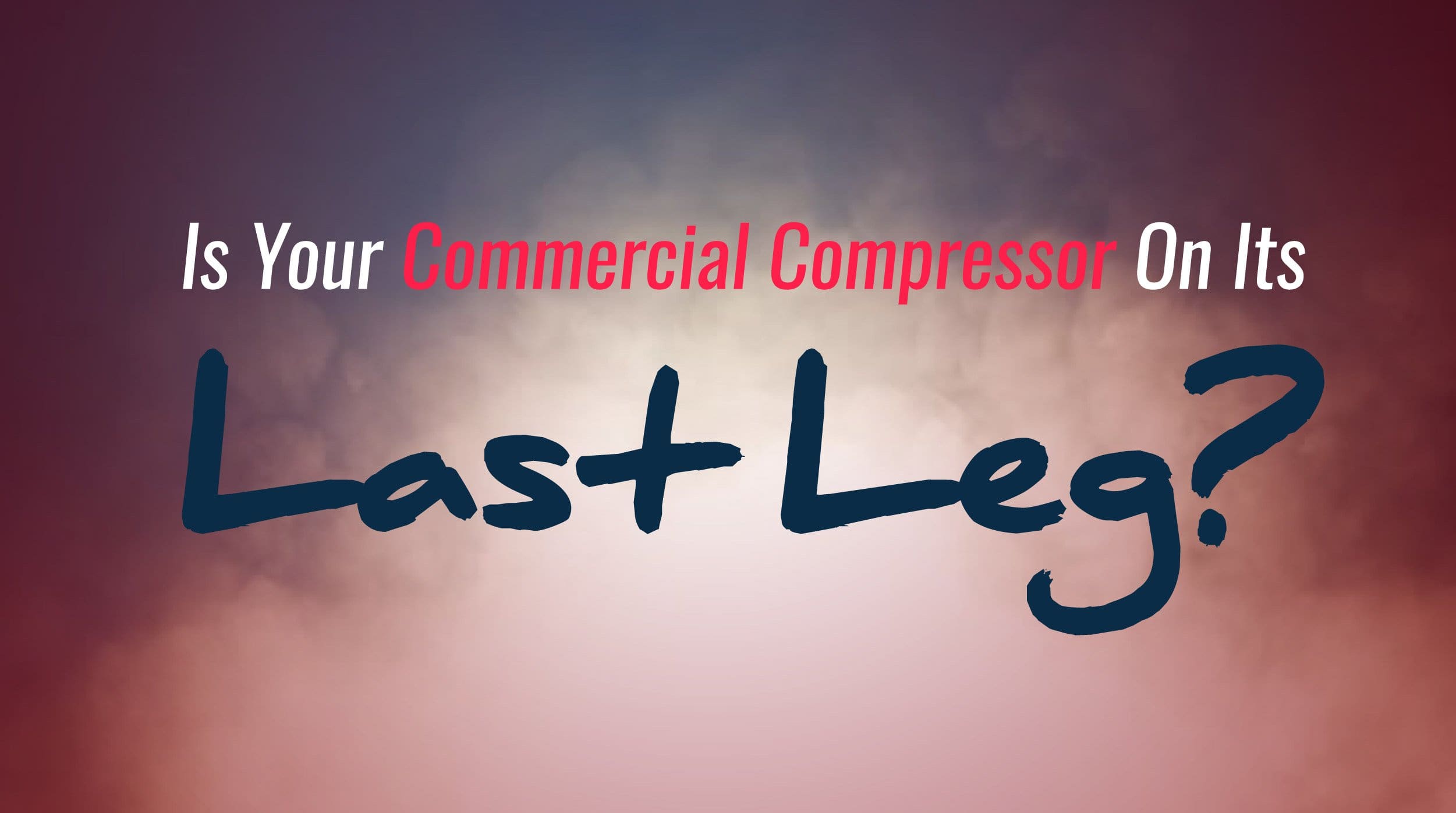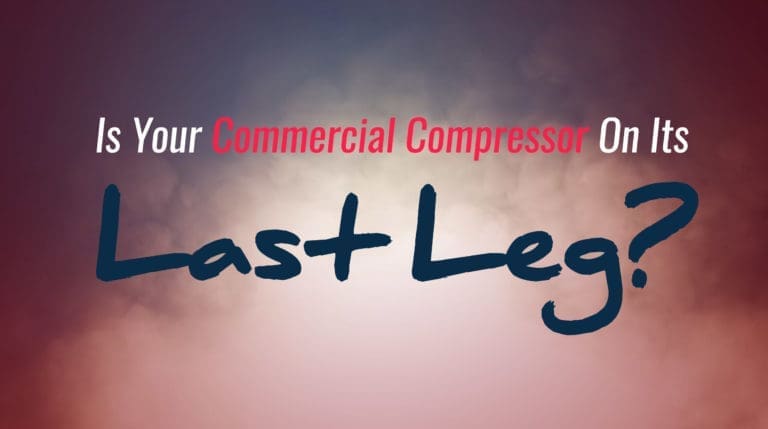
Your commercial HVAC or refrigeration compressor is the backbone of your entire cooling system. When it goes down, the whole system will undoubtedly fail. Unfortunately, many people ignore the signs of compressor failure instead of acting to save the compressor from further damage. Part of the reason is that they simply don’t know what their compressor is trying to tell them. Here are a few clues to help you keep an eye on your commercial compressor, and know when it is on its last leg.
Loud Clunking Noise
If your commercial compressor is making a big racket, it’s a sign that something has come loose. Even if you check inside the condensing unit, you might see that the compressor is still firmly bolted down and there is no visible movement. Nevertheless, it is best to call a professional because it’s possible that an internal component is bouncing around inside the housing, beating up all the other parts, and that could spell disaster. In some cases, the motor itself has come partially dismounted from the compressor body and is rattling around. You want to remount your compressor motor as soon as possible.
Hissing or Screeching Sound
Another common sign of damage is a hissing or screeching sound coming from anywhere in your system. This sound generally denotes a refrigerant leak, which means your valuable coolant is escaping into the atmosphere. Not only is this bad for the environment, but it could cause your unit to overheat or stop working altogether. By the time you notice the hissing sound, you will probably have noticed that your AC isn’t getting as cool as it once did, or that it is staying on for extended periods of time and freezing over. This is an early sign that there is a problem, and it is best to investigate for signs of leaks before all the coolant escapes. This is especially true if you have an older system that uses R-22 refrigerant, which is now being phased out and can be extremely expensive to replace, forcing many people to upgrade their units altogether.
Clicking, Ticking or Humming
Any of these sounds might be the sign of an electrical failure or a seized motor. Clicking and ticking usually means that your starter solenoids or relays have gone bad. In this case, the electronic component is being activated, but no power is being passed through. As a result, the compressor motor won’t start. This doesn’t necessarily mean that your compressor is bad, and it could be easily repaired if you can identify the bad relay. However, in some instances, the compressor has a seized motor completely, and is unable to start. When this is the case, you may hear repeated ticking or clicking, and the hum of power as the motor attempts to start, but the gears remain frozen in place. If you have reached this point, you will need to replace the motor or the entire compressor. This problem usually becomes immediately apparent because the system will continue attempting to start the motor as long as the thermostat indicates that cooling is needed. Thus, you will hear a click and a hum repeatedly, but no cold air will come through the vents.
Just paying a little bit of attention to the sounds your commercial compressor makes when it is healthy will give you a good baseline for hearing when something goes wrong. If you suspect that your compressor is making a noise you haven’t heard before, it’s time to call a technician who can diagnose the problem right away. They can find you the right compressor parts and service information with the help of Compressors Unlimited and our expert staff.












